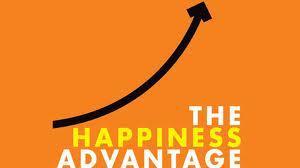In recent weeks I’ve been pondering the relationship between happiness and success. Can you be happy without achieving whatever success means to you? Can you be successful without being happy? One perspective on this conundrum was offered by positive psychology expert Shawn Achor in his recent TED talk.
He has travelled to many different countries, working with schools and companies, and what he found was that most organisations follow a formula for success which is: if I work harder, I’ll be more successful. And if I’m more successful, then I’ll be happier. This formula underpins most of our parenting and management styles; it’s the way we motivate ourselves.
However, he posits that this formula has it back-to-front because every time your brain registers a success, you just move the goalpost of what success looks like. And if happiness is on the other side of success, your brain never gets there. As he says: “ What we’ve done is push happiness over the cognitive horizon as a society.”
So, what’s the answer? Achor says it is to reverse the formula so we can start to see what our brains are actually capable of. Because dopamine, which floods into your system when you’re feeling positive, not only makes you happier but it also turns on all the learning centres in your brain, thus allowing you to adapt to the world in a different way.
He has found that there are ways in which you can train your brain to become more positive. And if you do these things for 21 days in a row, you can actually rewire your brain to work more optimistically and successfully.
1. Write down three new things every day that you’re grateful for. If you do this consistently for 21 days, your brain will retain a pattern of scanning the world for the positive first.
2. Journal about one positive experience you’ve had over the past 24 hours. This allows your brain to relive it and learn that your behaviour matters.
3. Meditate. This allows your brain to focus on one task rather than multiple tasks.
4. Random acts of kindness. Write one positive email every day, praising or thanking someone in your social support network.
I can certainly vouch for keeping a gratitude journal. I’ve been writing down at least three things I’m grateful for every day for the past two years and I can honestly say that my brain does scan for the positives now. I complain much less and count my blessings much more. Try it yourself and see.

Leave a Reply